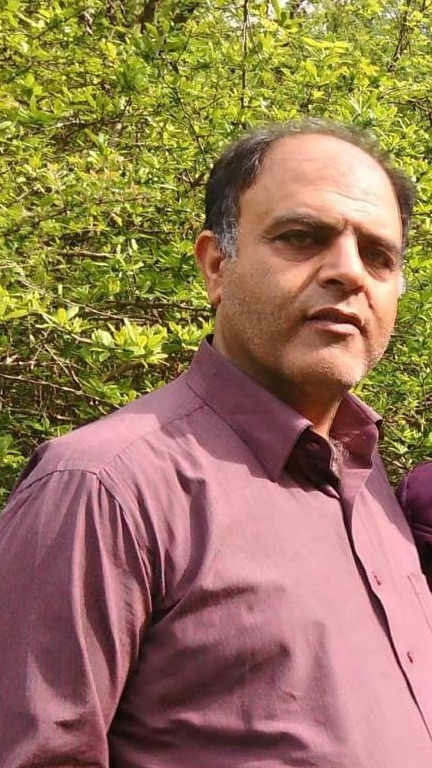Source: www.hra-news.org
Translation by Iran Press Watch

HRANA News Agency – On the morning of Saturday 5 January 2019, the business of Farshid Deimi, a Bahá’í citizen of Birjand, was sealed by order of judiciary officials.
Based on a report from HRANA News Agency, the news arm of the human rights activists in Iran, on Saturday 5 January 2019 the business of Farshid Deimi, a Bahá’í citizen in Birjand, was sealed by the order of the judiciary officials. A source close to this Mr. Deimi told HRANA, “Farshid Deimi’s store, where he sells computer accessories, has been in business for 20 years. Mr. Deimi’s business license renewal was denied by by authorities, who provided no specific reason. Mr. Deimi has kept his union membership dues and taxes paid throughout his years of operation. His business has been sealed since Saturday morning, by the order of the judiciary officials, and so far the only response from that body has been that the order has been issued by the high officials and nothing can be done by us.”
Bahá’ís in Iran are routinely subjected to interruption of their economic activities, despite Article 77 of the Civil Rights Charter, which states, “citizens have the right to choose a career of their interest and be occupied with it freely and without discrimination, while obeying the laws. No one can deprive the citizens from this right for ethnic, religious and gender reasons or differences of opinion in political or social tendencies.”
In November of 2018, a detailed report was published by HRANA regarding the persecution of the Bahá’í Community. Based on this report, in the period of 21 March to 19 November 2018, Bahá’í citizens in various cities throughout Iran experienced an increase in pressure from authorities as well as overt human rights violations, that included:
- The barring of at least 58 Bahá’í students from continuing education during last year’s university entrance examinations, and expulsion of at least 11 Bahá’í students at different academic levels from universities.
- Interruption of economic activities, including dismissals of at least six Bahá’í citizens from their personal work places or private companies, and forced closure and sealing of Bahá’í-owned businesses.
- Summons and arrests of 72 Bahá’í citizens by security agents.
- Sentencing of 24 Bahá’í citizens to a combined sentencing of 46 years of imprisonment and 9 years of exile.
- Widespread publication of anti-Bahá’í cultural and media productions.
- Desecration of Bahá’í gravesites and denying Bahá’í citizens the right to burial in Bahá’í cemeteries in various cities.
According to their religious beliefs, Bahá’ís suspend work and close their businesses for Holy Day observances. Authorities use these closures as an excuse to seal their businesses, despite By-Law B of Article 28 of the Law of the Trade Union, which states that business owners may close their businesses for up to a maximum of 15 days without informing the Union.
The sealings of Bahá’í-owned businesses continue despite assurances from Shahindokht Molavardi, the Special Assistant to the President on matters related to civil rights, in his conversation with the media on 3 December 2018, where he said: “In relation to the sealing of the business premises and prevention of Bahá’ís from activities, inquiries have been made to the President’s legal deputy, and we will continue this discussion through legal means so that we can find a solution for the issue.”
Baha’i citizens in Iran are systematically deprived of freedoms related to religious beliefs. This systematic deprivation is in direct contradiction to Article 18 of the Universal Declaration of Human Rights, and Article 18 of the International Covenant on Civil and Political Rights (ICCPR), both of which Iran is signatory, “all persons have the right to religious freedom, the right to change their religion or belief, and the freedom to express their belief individually or collectively in public or private.”
Iran’s Constitution only recognizes Islam, Christianity, Judaism and Zoroastrianism, and does not recognize the Baha’i Faith as a religion. The Regime has used this to justify systematic denial and violation of the civil rights of the Baha’is over the years.
As the Iranian Regime has forced the Baha’i community to disband its administrative bodies, it is difficult to accurately assess the number of Baha’is in Iran. However, based on unofficial sources, it is believed there are over 300,000 Baha’is currently living in Iran.
Leave a Reply